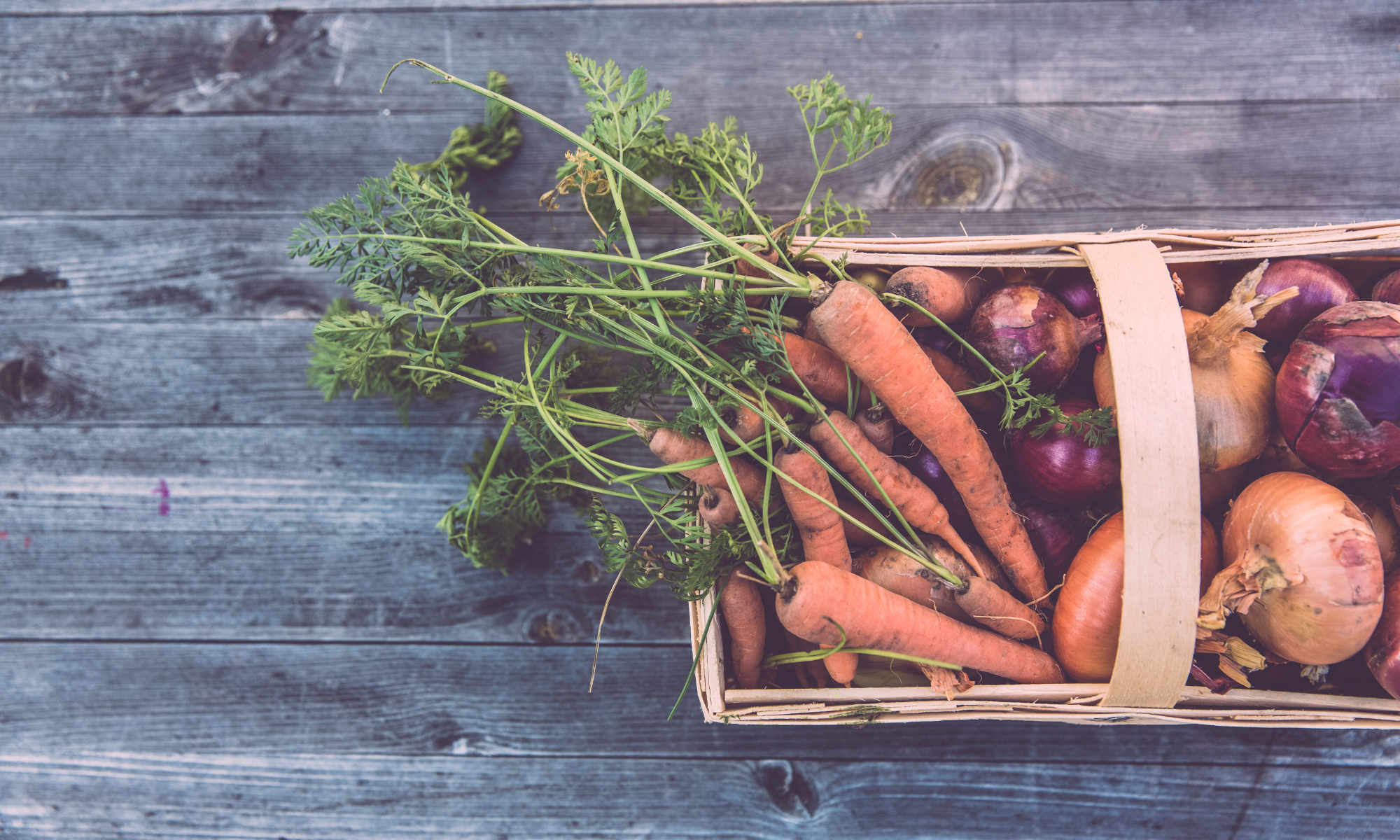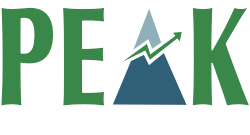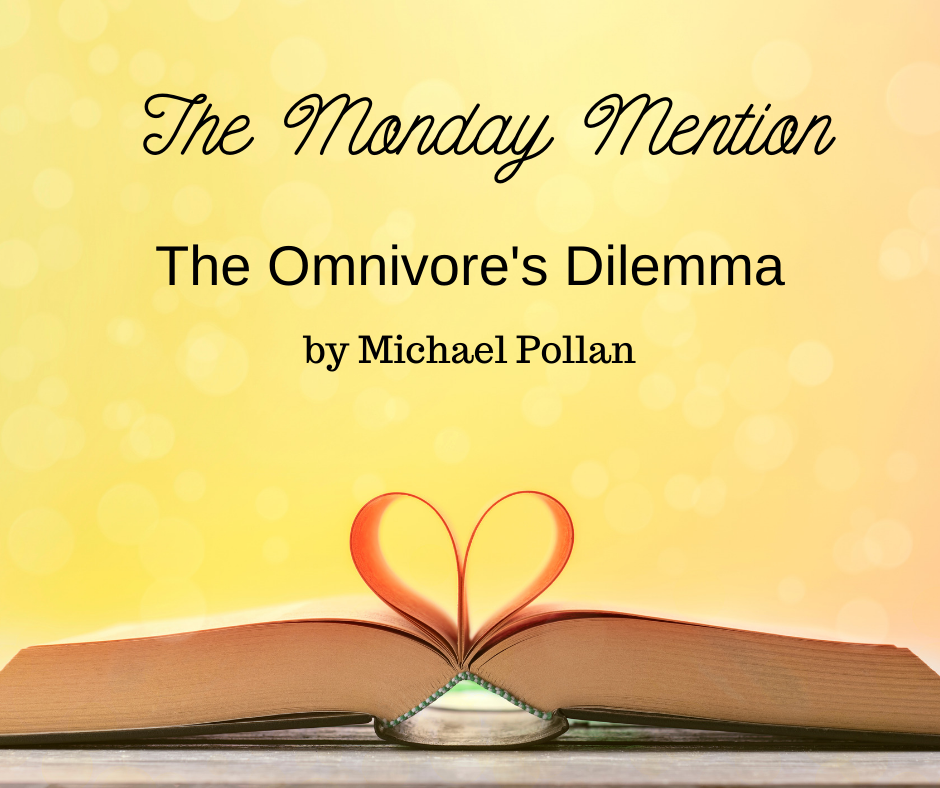
There’s something you should know about me… I’m a bibliophile, a bookworm, an avid reader. Whatever you want to call it, there is nothing I love more than immersing myself in a good book – especially when the sunny Pacific Northwest summer days turn to day after day of drizzle. Now, I’m no snob when it comes to my reading material – give me a mystery, a biography, an old classic or a science laden textbook – heck, even the back of a shampoo bottle – and I’m a happy camper. So I’ve decided I should use at least some of the hours I spend with my nose buried in a book as fodder for this blog and share my thoughts on some of my favourite, and maybe not so favourite, health and nutrition related tomes.
First, a Favourite….
In The Omnivore’s Dilemma – A Natural History of Four Meals, Michael Pollan confronts the seemingly simple questions of “What should we eat?” and “Where does my food come from?”. By tracking four meals back through the food chain, Pollan discovers that the choices we make when it comes to our food reach far beyond merely deciding meat or vegetable, low fat or high fat. The Omnivore’s Dilemma is less about choosing from the variety of foods we COULD eat and more about determining what we SHOULD eat, as these choices not only affect our health, but have political, ethical, environmental and financial consequences as well.
Throughout the book, Pollan takes us through the sourcing of meals supplied by three different food chains, the industrial, the organic (both industrial and pastoral) and the hunter gatherer. Tracing these meals back to their roots provides some surprising and disturbing insights related to each of these food systems. Industrialized corn, by being massively overproduced and subsidized by the government, has found it’s way into virtually everything we eat — whether it is the feed used to produce meat, high fructose corn syrup or other additives used in processed foods. The variety we see at the grocery store is really an illusion, as the industrialized food system has turned our society of omnivores into specialized eaters of corn (pg. 117). Ironically, the mountain of corn produced on farms each year cannot support the farmers themselves, either physically (as it must be processed to be eaten) or financially. Today’s monoculture farms are really nothing more than food deserts (pg.34).
The organic food system, through absence of chemical fertilizers and pesticides, is undoubtedly healthier than the basic industrial system. The differences between the two, however, stop there. With mono crops and their need for fertilizers (even if organic) due to soil depletion, the petrochemicals used in shipping and the use of synthetics in food production, organic now resembles industrial more than ever. The industry uses marketing and catch phrases to lull the consumer into believing what they are buying is good for them, the animals and the environment.
Conversely, the pastoral farm system (absolutely my favourite section of the book) relies on a symbiotic relationship between the earth and animal and between different species of animals, as well. It’s a system that recognizes the bio-individuality of the animal and lets them express their innate instincts. This type of sustainable system creates an ecological loop, where waste basically ceases to exist. The environmental and moral benefits of this way of farming are obvious but, as Pollan recounts, not without its own set of issues. There is little support for the sustainable farmer as he has no need for the chemicals, machines and fertilizers sold by the companies that are most likely bankrolling the policy makers. Lack of subsidies and regulations forbidding the slaughter of animals on site all add to the cost of the food produced. As such, sustainable food is seen as something only the moderately wealthy can afford. This is another aspect of the Omnivore’s Dilemma explored in the book – does the money saved by buying government subsidized, mass produced, nutrient poor food offset its cost to our health, environment and ethical well being?
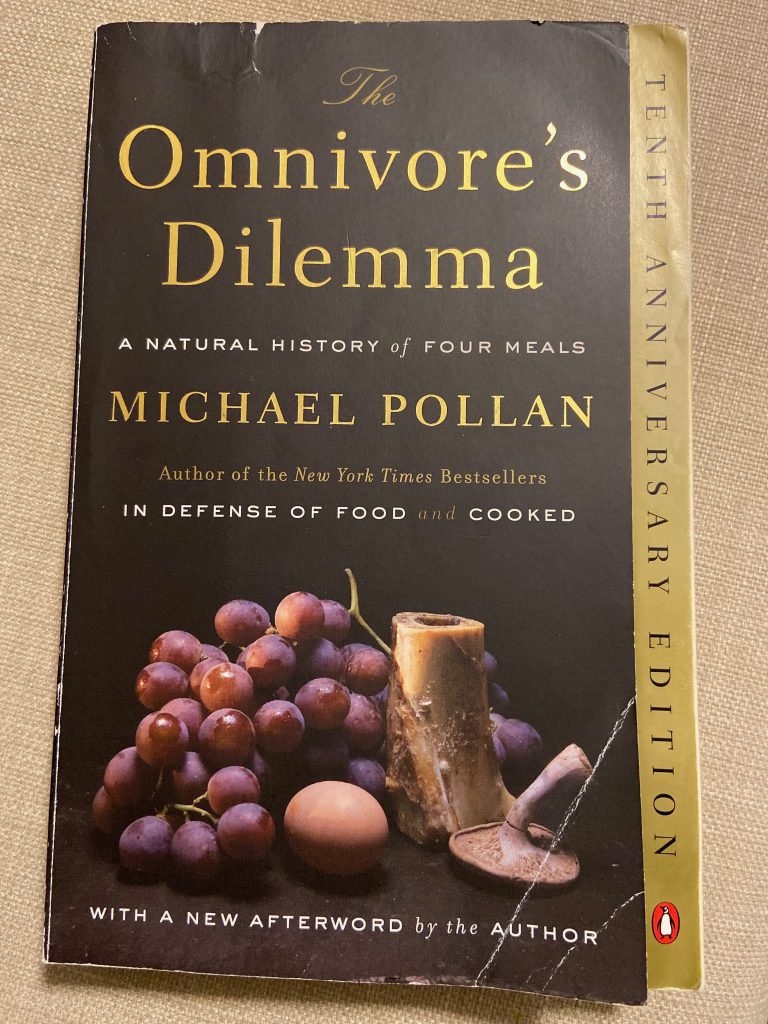
The final meal prepared by the author was one he hunted and gathered himself. Pollan readily admits that this is not a viable way to source all food in today’s world, but in exploring this simplest of food chains he was able to re-establish a connection to and a gratitude for his food that is lacking in most standard food systems. He also explores the idea that America’s lack of culinary traditions (wisdom passed down by our ancestors informing us of what we should eat and how it should be prepared) leaves us prone to confusion and “Omnivore Anxiety” (Pg.300). Without guidelines provided by our culture, we are more apt to follow the advice of so-called experts, the slick words of marketers and sadly, end up with a fad diet not tailored for us, but for the pocket books of big business.
I would implore anyone who eats food to read this book. Whether you eat industrially, organically or sustainably, you should know where your food comes from so you are making educated choices. One reason I chose to review this book is because, as a Nutritional Therapy Practitioner, I advise clients to source food from sustainable producers as much as possible – food that is local, seasonal, nutritionally dense and, in many cases, more expensive than what, on the surface, looks to be the same product sold at the grocery store for less money. Being able to discuss how your food choices affect your health, the environment and even influence the food economy is vital. The observations Michael Pollan makes in The Omnivore’s Dilemma align well with the principles of Nutritional Therapy and delve further in to the question of what we should eat than just looking at what is healthier for the individual. The more we educate ourselves, the less complex the Omnivore’s dilemma becomes. By gathering this knowledge, we empower ourselves to make changes that benefit our wellbeing, the wellbeing of our land and animals and the wellbeing of our food system as a whole. Joel Salatin, the “Godfather” of sustainable farming practices, is quoted in the book as saying, “In nature, health is the default. Most of the time pests and disease are just nature’s way of telling the farmer he’s doing something wrong” (pg.321). Perhaps the same could be said of our human diet. The rise in chronic diseases that we are experiencing could very well be Nature’s way of telling us that what we are eating is wrong.
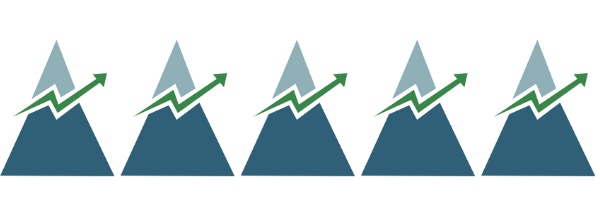
References
Pollan, Michael. The Omnivore’s Dilemma: A Natural History Of Four Meals. New York : Penguin Press, 2006. Print.
